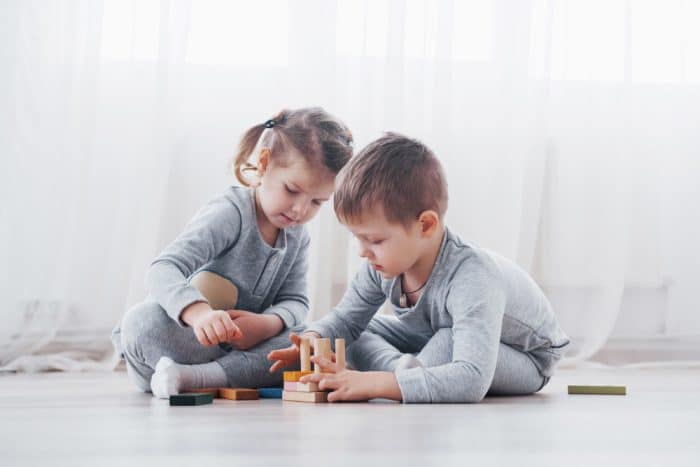
Becoming a new parent is one of life’s most exciting and joyful experiences. However, it is no secret that this new season of life also comes with its fair share of challenges and uncertainties. As you embark on this remarkable journey of raising a child, understanding the importance of play stages can be immensely beneficial for both you and your little one. Play is not merely a form of entertainment for children; it is a fundamental aspect of their development, influencing their physical, cognitive, emotional, and social growth. By understanding the various play stages that children go through, new parents can provide appropriate support, guidance, and opportunities for their child’s optimal development.
Today, we explore the 6 stages of play development and delve into why it is crucial for new parents to grasp and embrace them wholeheartedly. Read on to find out more.
- Unoccupied Play (0-3 months)
During the first few months of life, infants aged 0-3 months engage in unoccupied play. They explore their bodies by kicking, waving their arms, and making random movements. Babies may also engage in vocal play, making cooing sounds, babbling, or experimenting with different sounds and pitches. This unoccupied play helps infants learn about their bodies and develop motor skills. As a parent, it is important to provide safe and stimulating environments that encourage infants to explore their surroundings at this stage of play development. This can include age-appropriate toys, soft objects, and colourful mobiles that help them develop their motor skills and coordination. It is also important to remember that parental supervision is crucial to ensure infants’ safety during this stage of play.
- Solitary Play (0-2 years)
Solitary play is when children ages 0-2 years play independently, often engrossed in their own world of imagination. At this stage, there is little to no interest in playing with others quite yet. Examples of solitary play may include (but are not limited to), playing with building blocks, supervised play on swing sets, pretend play, reading books, solving puzzles, or playing musical instruments. This stage of solitary play allows children to develop independence, creativity, problem-solving skills, and self-expression. Parents can support this stage by providing a variety of toys and materials that foster creativity and exploration. It’s also important to allow children the freedom to play at their own pace and encourage their independence while ensuring a safe play environment.
- Onlooker Play (2 years)
Also known as spectator play, the onlooker play stage is a stage of play development that occurs when children (2 years) observe others engaged in play activities without actively participating themselves. During this stage, children are interested in watching and learning from their peers, but they do not actively engage or interact with them. For example, a child may sit on a bench or outdoor tables nearby, closely watching other children playing on swings, slides, or engaging in group activities. Onlooker play provides children with the opportunity to learn from their peers, observe new play ideas, and develop social and cognitive skills through observation and reflection. It is important for parents to respect and support a child’s onlooker play experiences (and to avoid forcing them to interact), as they contribute to their overall social and cognitive development.
- Parallel Play (2-3 years)
Between the ages of 2-3, a child will go through the parallel play stage, where he or she will play alongside or near to others without actively engaging or interacting. During this stage, they may play with similar toys or mimic each other’s actions. This stage is an opportunity for children to observe and learn from their peers, and parents can facilitate parallel play by arranging playdates or attending playgroups where children have the chance to be around other kids their age. Although they are not directly playing together, parallel play helps children develop social awareness and basic communication skills.
- Associative Play (3-4 years)
During the associative play stage, a child will start to show an interest in interacting and playing with other children. Children engage in sharing toys, materials, and ideas during play activities, on top of showing curiosity about their playmates’ actions, asking questions, and engaging in basic conversations. Children may engage in play scenarios with common themes, such as playing house, building cities with blocks, or engaging in pretend restaurant play. At this stage, children develop important social skills such as cooperation, communication, sharing, and turn-taking. It provides a foundation for more complex forms of play and lays the groundwork for future social interactions.
- Cooperative Play (4-6 years)
The sixth and final stage of play development is cooperative play. During cooperative play, children (4-6 years) work together in groups to achieve a common goal. They engage in more structured and organised activities, such as building forts, playing board games, or participating in team sports. Other examples include group art projects and pretend play with roles. Cooperative play helps children develop vital social skills, including teamwork, communication, problem-solving, and empathy. It nurtures their ability to understand and respect others’ perspectives, fosters a sense of unity, and promotes a positive and inclusive play environment. At this stage, parents can support children by providing opportunities for group play, encouraging communication and collaboration, and reinforcing the importance of fairness and teamwork.
In A Nutshell
Understanding the six stages of play development can empower parents to actively support their children’s play experiences. By providing a nurturing environment, age-appropriate toys, and opportunities for positive social interaction, parents can help their children develop important cognitive, physical, and social skills. Remember to embrace each stage, as children may progress at their own pace. Through play, children learn, explore, and grow, and as parents, we have the privilege of witnessing and fostering their incredible journey of development.




